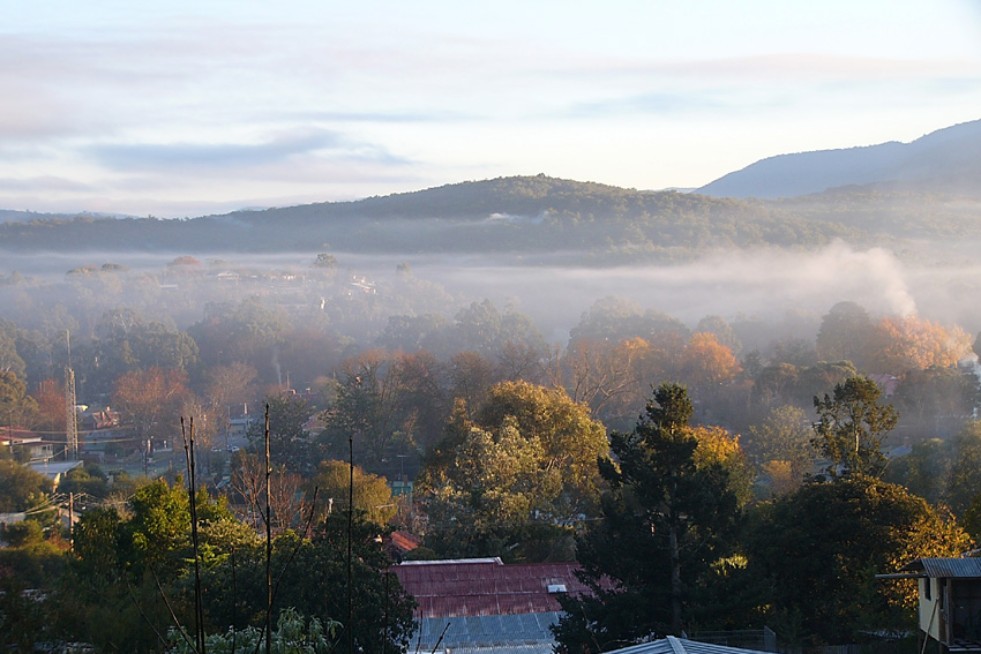
Easter Sunday
The Resurrection of the Lord
April 24, 2011
Reading
I: Acts 10:34a, 37-43
Responsorial
Psalm: 118:1-2, 16-17, 22-23
Reading
II: Colossians 3:1-4 or 1 Corinthians 5:6b-8
Gospel:
John 20:1-9 or Matthew 28:1-10
or Luke 24:13-35 (afternoon or evening)
On Easter Morn the rising sun dances, as everyone knows.
When I was about 4 we stayed with my unmarried aunt over Easter. Her place was way back in the bush in those steep hills above Port Albert in Gippsland, miles from anywhere, a hotel where commercial travelers could find a bed and road gangs and timber workers get a drink. Our Aunty never got to church from there, but she knew how to give a 4 year old a lively experience of Easter Sunday morning.
The night before, she told us we'd need to be up early to see the sun dance on Easter morning. Sure enough she had us out half an hour before sunrise, trekking through long grass to the top of the nearest hill from where we had an unforgettable view across the rounded wooded hilltops, and as promised the rising sun danced for the risen Christ.
It's in the gospel narrative, the excitement of that early morning, 'before the sun was up', movement in the garden, puzzlement, strange encounters, men running, wonderment - the rising sun dancing for sheer joy.
The thing we can't ignore in those men and women is their conviction formed during the days and weeks in which they had experiences of Jesus alive again, or still. 'He is risen!' 'No, that's impossible.' 'But it's true.'
In the account of Pentecost we read a summary of their presentation to the people in the form of Peter's address to the crowd.
"God raised this man, Jesus, to life, and all of us are witnesses to that...'
'For this reason the whole House of Israel can be certain that God has made this Jesus whom you crucified both Lord and Christ' (Acts 2:32,36).
It is testimony not easy to ignore, the experience of those who lived through it and found conviction enough in their own good sense together to go public.
What now?
If Yeats can see 'that twenty centuries of stony sleep were vexed to nightmare by a rocking cradle', what can we make of an empty tomb, of men and women convinced of the impossible? He is risen.
What does it mean for now and future time? Is this the still point of the turning universe? Is the greatest call today and every day, as we go about our ordinary business or engage in monumental struggles against the dark, for us to hope? To hope that life moves towards fulfillment - through all the horrors we have seen these days past - through all those yet to come as 'what rough beast, its hour come round at last, slouches towards Bethlehem to be born?'*
Do not be afraid. Dare to hope. Christ is risen. Darkness is dispelled at every dancing dawn.
* from The Second Coming by W. B. Yeats